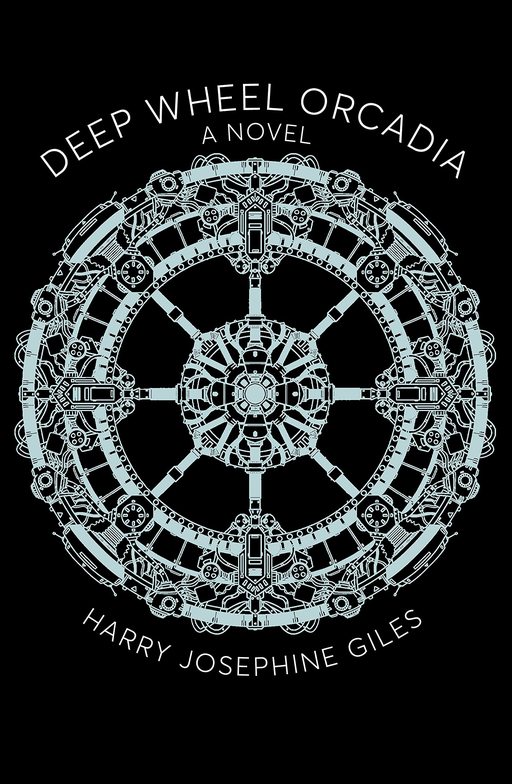Harry Josephine Giles on a golden age of trans fiction
Ahead of an Edinburgh Book Festival event with Shola van Reinhold and Torrey Peters, Harry Josephine Giles discusses the ever-changing world of trans literature
Writer and performer Harry Josephine Giles is known for working at the intersections. Their debut novel Deep Wheel Orcadia blends poetry and prose, science fiction and love stories, English and the Orkney dialect. This week at the Edinburgh Book Festival, Harry Josephine will chair a number of events, including a panel with authors Imogen Binnie, Torrey Peters and Shola von Reinhold on ‘the golden age of trans literature’ and whether we are, in fact, in one.
"I think what we want to do by bringing these people together is to kind of unpick the idea of a ‘trans literature’ that these books are a part of, that these books have helped shape," Harry Josephine says.
The question of what we talk about when we talk about trans literature is one that can spider outwards into all sorts of directions. Harry Josephine points out that the term rarely encompasses the breadth of trans poetry, for example, while many contemporary trans texts push back against the tropes of trans memoir – a form which for many years seemed to be the only way a trans person’s writing would reach a large audience.
"I would say that trans poetry in both the UK and the US has been going for longer and has been developed for longer than trans fiction, but it often gets left out of these narratives. Because poetry has less bank to it, because publishers don’t make money off poetry, it doesn’t get talked about as ‘trans literature’ in the same way," she says. "But it is."
Trans poetry is a more malleable form than others, allowing trans writers to lean into the sort of ambiguity that could otherwise feel out of bounds. Many contemporary trans novels are embracing this too, resisting explanations of transness or conclusive depictions of life after transition.
"Trans memoir is the literary form that we’re struggling against the most," says Harry Josephine. "Trans memoir feels to me like it’s entwined with the medical case history of transness and they’re there to provide an authentication of trans life. They have to have a resolved ending because what they’re doing is establishing transness as a real thing, and they use that form to do it. Whereas when you’re writing a piece of creative literature, you have to do something else."

The cover of Deep Wheel Orcadia by Harry Josephine Giles
Harry Josephine has experience in doing ‘something else’, creatively speaking. Straddling the bounds of epic poetry and long-form fiction, her novel Deep Wheel Orcadia plays with language and form in a way that questions our perceptions of both. The main body of the novel, written in the Orkney dialect, plays out in the shape of an epic poem while its English prose translation sits at the bottom of the page, filled with compounded synonyms. The book follows Astrid and Darling as they fall for each other on Deep Wheel Orcadia, a distant space station whose community is trying to keep pace with the rapid economic and technological change that threatens their survival.
Speculative genres have historically been a bit more open to queer and trans writing than more traditional literary circles, while other genres have been difficult to penetrate. While the gates are beginning to open, like many things in trans life, entry to these spaces can still rest on the authors fitting into particular criteria.
"I think there’s a difference here between what trans people are doing, and what they’re economically supported to do," she says. "Trans writers have always been experimental writers. There’s always been trans underground literature, there’s always been experimental work, but the question is who’s reading it, who’s economically supported to do it, and what does a big institution like the Edinburgh International Book Festival recognise? There’s class elements to this, there’s race elements to this. Trans people are now getting bigger deals to write more stuff, but there’s always been a deeply weird trans literature that I’ve been excited about."
As for the literary moment that we now find ourselves in, Harry Josephine is clear-eyed about the way that these things work. The element that seems to set this trans literary moment apart from others isn’t necessarily the what, but rather the when.
"It’s this kind of forced forgetting that happens I think with all oppressed groups as they enter into bourgeoise spheres – and these things happen on a cycle as well. We’re going to have a highly-marketed trans literary moment, and then it’s going to end, and then in twenty years’ time it’s going to happen again," they laugh. "Because that’s what happens when they remember us. This is a particular interesting one for writers because it’s happening at a moment of heightened social attention and heightened social pushback. But it’s also a scary one in that way."
Harry Josephine Giles will be chairing 'A Golden Age for Trans Fiction' at the Edinburgh International Book Festival with Shola von Reinhold, Imogen Binnie and Torrey Peters, Wed 24 Aug, 8pm, in-person tickets £12, also available to watch online, pay-what-you-can
